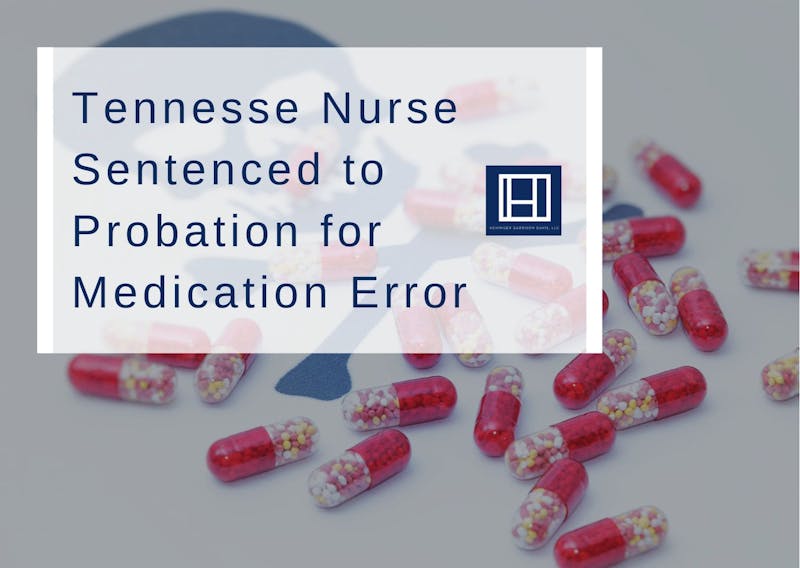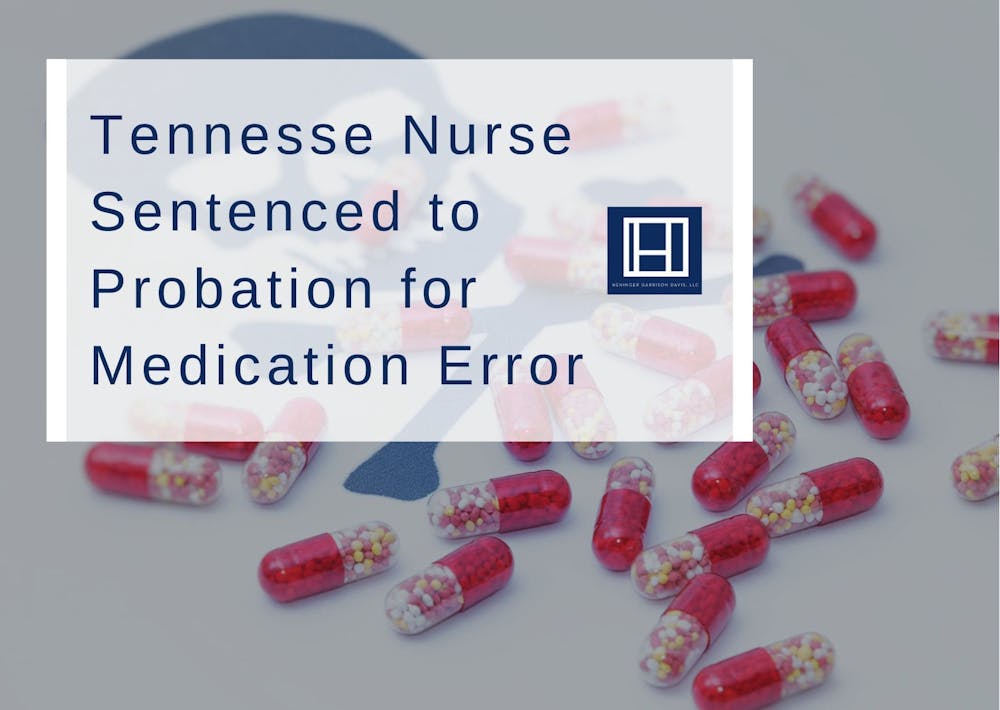

A former nurse in Tennessee was sentenced to three years of probation for causing a patient’s death due to medication errors. The nurse apologized to the victim’s relatives and said she will be haunted by her mistake forever. The nurse was charged with criminally negligent homicide and gross negligence of an impaired adult. She claims that she accidentally gave the patient the wrong medication.
Groups of nurses outside the hospital supported the nurse, claiming that understaffing and systemic problems limit nurses’ ability to care for patients safely. The nurse injected a paralyzing drug called vecuronium instead of the correct medication, a sedative called Versed. The 75-year-old patient died in 2017.
How Common are Fatal Medication Errors?
The case above demonstrates a growing problem in hospitals – overworked medical professionals making medication errors. Unfortunately, this is not an isolated incident. Preventable medication errors occur every year, costing billions in damages. As many as 9,000 people die every year due to fatal medication errors.
Hundreds of thousands of patients suffer adverse reactions or other complications from medication errors but do not report the complications. In addition to suffering medication errors, victims also experience physical pain and suffering as well as psychological pain. There are several different types of medication errors that can lead to serious injuries or death:
- Prescribing errors: The prescribing doctor or physician’s assistant prescribes the wrong medication, the wrong dosage, or medication that interferes with other medications the patient is taking or should not be taken due to an allergy
- Repackaging errors: The pharmacy can make an error by labeling prescription bottles with incorrect information or failing to include warnings. Errors can also occur when transferring medication from bulk packaging to smaller prescription bottles.
- Dispensing errors: When there is a discrepancy between the prescription and the medication provided to the patient, a dispensing error occurs. The error could involve the wrong amount of medication or poor quality of medication.
- Administering errors: Administration errors include giving medication to the wrong patient or giving the correct medication in the wrong way, such as crushing a pill that should not be crushed. Failure to provide medication on the patient’s prescribed schedule is another example of administration error.
- Monitoring errors: When doctors and nurses fail to monitor patients after they take medication, serious injury or death can occur. For example, if a patient is on blood thinner medication, he or she should be monitored with lab tests to avoid excessive bleeding. Similarly, patients with heart failure should not be given certain types of medication if their heart rate falls below a specified rate.
- Transcription errors: Doctors often dictate prescription orders for patients, especially in busy practices and hospitals. Errors can occur when the medical order is incorrectly transcribed.
Schedule a Free Legal Consultation Contact Us
Pursuing Compensation After an Injury Caused by a Medication Error
Patients injured by medication errors may have the right to file a civil lawsuit against the negligent doctor, nurse, or pharmacy who conducted the medication error. Even if you have suffered a minor injury like vomiting, nausea, dizziness, or other reactions could be actionable through a lawsuit, depending on the circumstances.
Patients may be able to pursue a legal claim against any medical provider whose negligence caused their injury, including the doctor, nurse, pharmacist, hospital, or any other type of medical facility. To succeed in a medical malpractice lawsuit based on a medication error, you and your attorney will need to prove the following:
- The provider owed you a duty not to injure you because you were a patient
- The provider breached his or her duty of care by negligently failing to meet the medical standard of care
- The provider’s negligence was the direct and proximate cause of your injury
- Your injury resulted in damages
Compensation Available From a Medical Error Lawsuit
Plaintiffs in medical malpractice lawsuits are entitled to several types of damages, including compensation for hospital bills, out-of-pocket medical expenses, lost wages, loss of future earning potential, and pain and suffering.
Unfortunately, not all victims of medical errors survive. If your loved one has passed away due to a medication error, you may be able to pursue a wrongful death lawsuit. While nothing can bring your loved one back, recovering compensation for medical expenses, funeral expenses, and your pain and suffering can help your family move forward. Contact Heninger Garrison Davis today to schedule your free initial consultation if you or your loved one have been injured in a medical malpractice incident.

